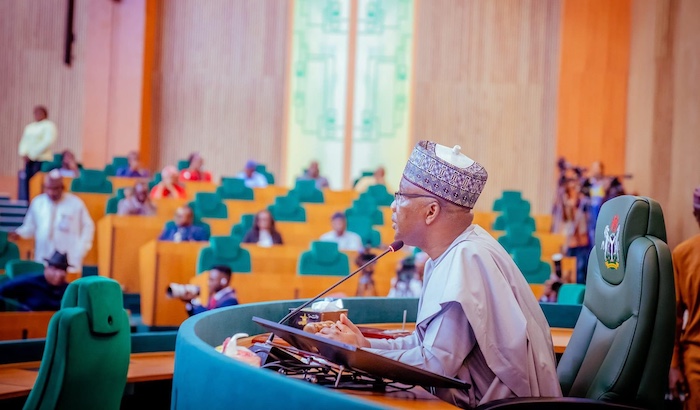
Nigeria’s House of Representatives has raised the alarm over reported terrorist threats to bomb the National Assembly Complex in Abuja, a development lawmakers say could cripple parliamentary activities and threaten the country’s democratic stability.
The revelation came on Tuesday during a public hearing on a bill seeking to establish a Legislative Security Directorate, a new framework aimed at enhancing security within the federal legislature.
The hearing, held in Abuja, was chaired by Hon. Garba Muhammad, who also serves as the Chairman of the House Committee on Internal Security.
Muhammad confirmed that credible threats had been received from terrorist elements targeting the National Assembly and warned of the potential consequences if urgent preventive measures were not taken.
“We have received threats from terrorists to bomb the National Assembly Complex and threats from protesters to lock up the National Assembly,” he said.
He explained that the National Assembly has long struggled with internal security challenges, including theft, vandalism, and unauthorised access.
“Legislators are exposed to threats from constituents and others who gain easy access to their offices without any formal appointment,” he added.
The Kano lawmaker stressed that failing to act promptly could disrupt legislative duties and destabilise national governance.
“It is obvious that with the ongoing security challenges, if proper measures are not taken, it will truncate the legislative activities in the National Assembly. If activities are thwarted, there will be no representation, no oversight, no annual budget, no plenary at all, and that will destabilise legislative procedure, democracy, and the stability of the system, and our nation at large,” he warned.
The proposed Legislative Security Directorate Bill (HB 1632) seeks to establish an independent body responsible for managing and coordinating security operations within the National Assembly.
Its functions would include screening visitors, conducting intelligence and threat assessments, coordinating with national agencies, and ensuring the safety of legislators, staff, and public property.
Muhammad noted that the new legislation aims to balance public accessibility with institutional safety.
“The need for effective security measures in the National Assembly cannot be overemphasised because parliament has to remain accessible to the public,” he said.
“However, this bill is committed to ensuring the best security architecture in the National Assembly, to protect legislators, staff, visitors, and property.”
He further urged State Houses of Assembly to take similar steps to strengthen the security of their own complexes across the country, describing the bill as “a major step toward securing Nigeria’s democratic institutions.”
This is not the first time such threats have been made. In May 2021, a security alert reportedly warned lawmakers of a planned Boko Haram attack on the National Assembly and other key government locations in Abuja, prompting tighter screening and restricted entry at the time.
Security experts have repeatedly described the National Assembly as a “soft target” due to its open access and heavy daily traffic, urging the government to adopt a centralised and technology-driven approach to legislative security.
The House leadership has pledged to expedite consideration of the bill, while interim measures, including stricter visitor screening, identity verification, and surveillance, are expected to be implemented.
As Nigeria continues to grapple with multiple security crises nationwide, the latest threat to the legislature underscores the urgent need to fortify one of the country’s most important democratic institutions.
Ademide Adebayo



